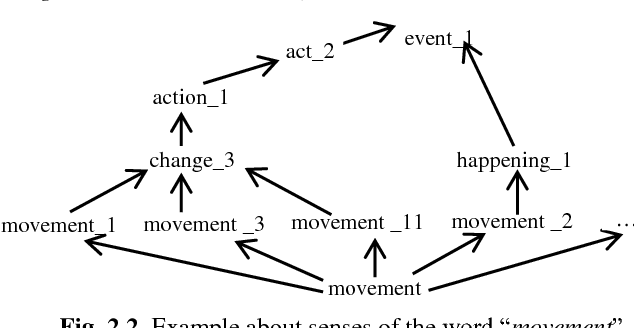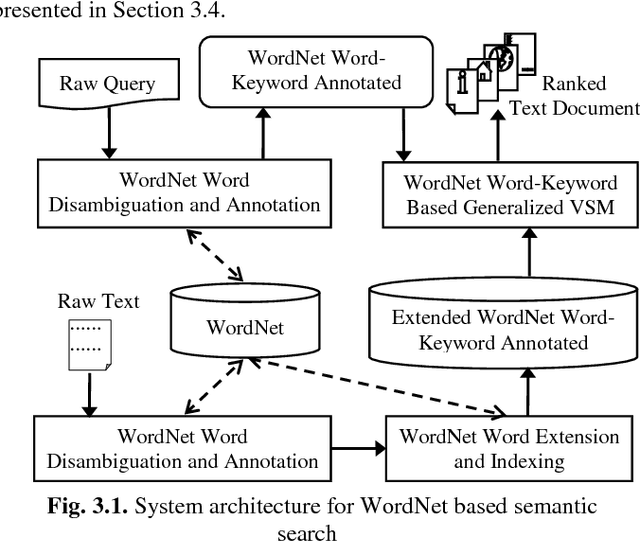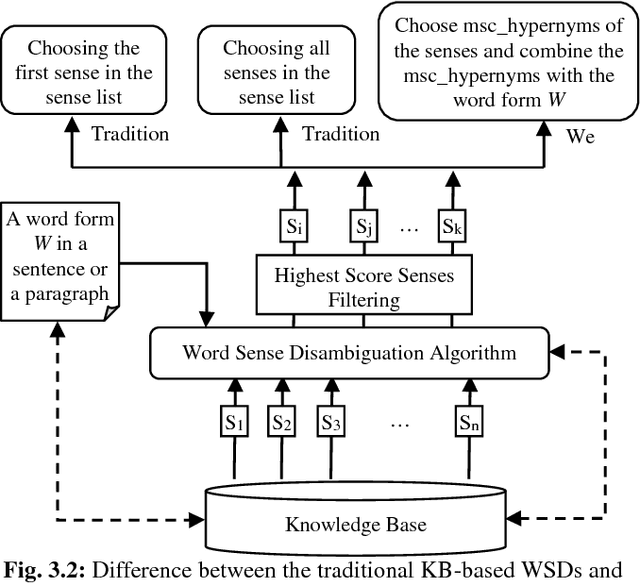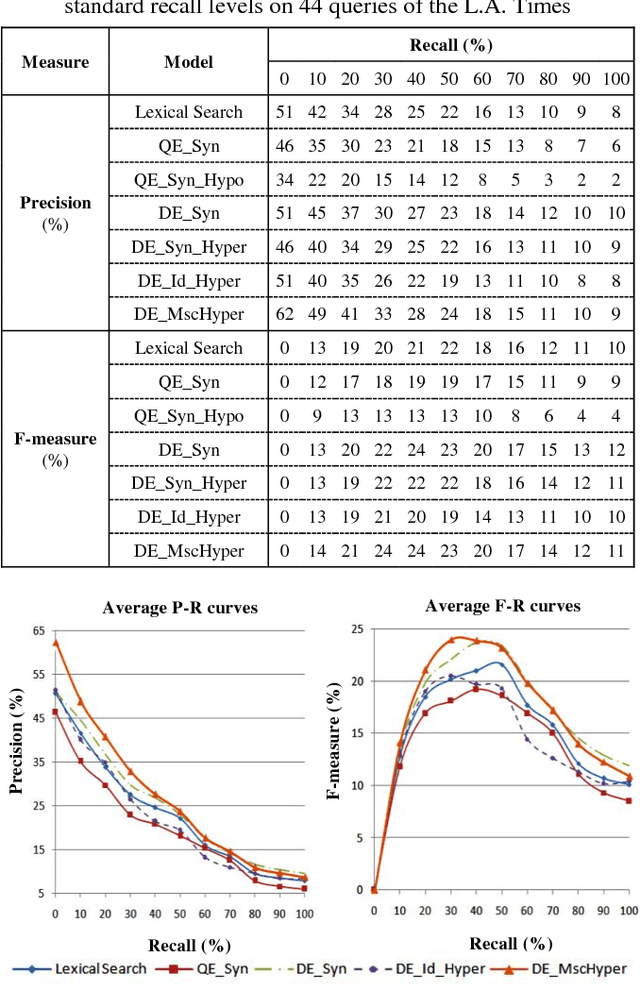WordNet-Based Information Retrieval Using Common Hypernyms and Combined Features
Paper and Code
Jul 15, 2018



Text search based on lexical matching of keywords is not satisfactory due to polysemous and synonymous words. Semantic search that exploits word meanings, in general, improves search performance. In this paper, we survey WordNet-based information retrieval systems, which employ a word sense disambiguation method to process queries and documents. The problem is that in many cases a word has more than one possible direct sense, and picking only one of them may give a wrong sense for the word. Moreover, the previous systems use only word forms to represent word senses and their hypernyms. We propose a novel approach that uses the most specific common hypernym of the remaining undisambiguated multi-senses of a word, as well as combined WordNet features to represent word meanings. Experiments on a benchmark dataset show that, in terms of the MAP measure, our search engine is 17.7% better than the lexical search, and at least 9.4% better than all surveyed search systems using WordNet. Keywords Ontology, word sense disambiguation, semantic annotation, semantic search.
 Add to Chrome
Add to Chrome Add to Firefox
Add to Firefox Add to Edge
Add to Edge